A healthy diet is a balanced diet. Growing up, we may have heard this statement one too many times. But, have you wondered what is it, and what it entails? While the plethora of information available online can help you understand the basics of nutrition, our experts will help you understand everything you need to know about a balanced diet and its essential factors.
A balanced diet is where the body receives ample nutrition so that it can function to its highest potential. “A healthy balanced diet provides the body with adequate calories, essential nutrients—both macronutrients and micronutrients—as well as fluids. Consuming a balanced diet ensures you eat all the required nutrients to maintain good health and keeps your body in optimum condition,” says Dr Eileen Canday, head dietician and head of department, nutrition and dietetics Sir HN Reliance Foundation Hospital. She further emphasises that a balanced diet does not cut out food groups, and consists of a wide variety of foods to support your body and keep you energised. Moreover, a balanced diet offers a healthy lifestyle, and protects against non-communicable diseases like obesity, diabetes, cardiovascular diseases, and cancer. It also helps you to build immunity against various communicable diseases.
A balanced diet is made up of seven essential factors. According to Dr Canday, they are:

• Carbohydrates: They are your body's main source of energy and provide fuel to brain. Their primary function in your body is to provide energy, store energy, build macromolecules, and spare protein and fat for other uses. Ideally, one should consume 130 grams of carbs in a day.
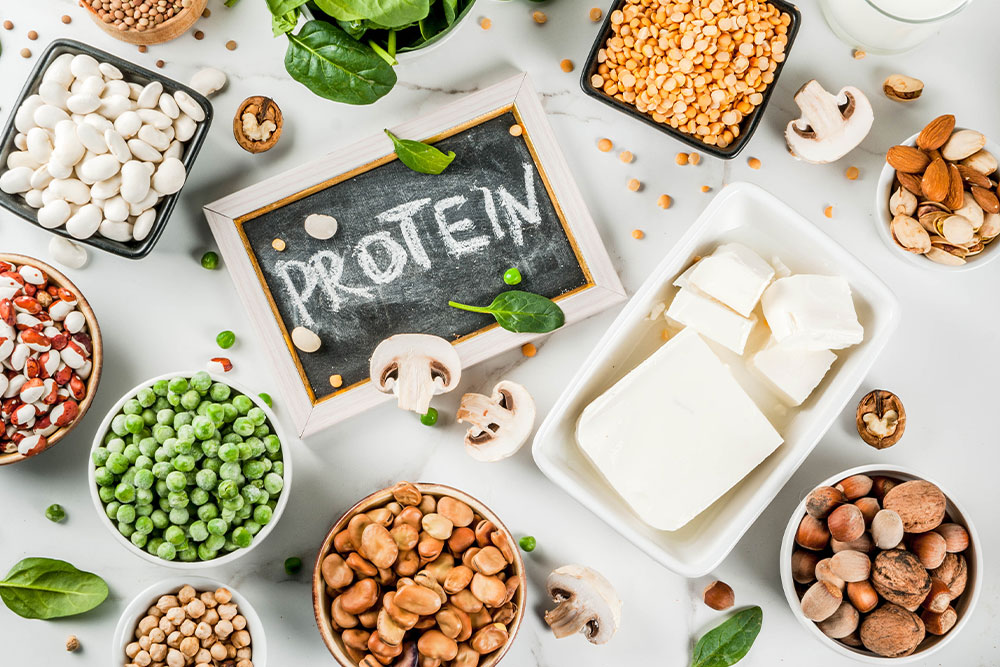
• Proteins: It is one of the essential nutrients and are the building blocks of our body tissues. They are needed by the body for growth and maintenance, and form a major structural component of all body cells, especially muscles. The protein requirement is calculated as one gram per kilogram of body weight. So, if you weigh 60 kilograms, you would need 60 grams of protein a day.
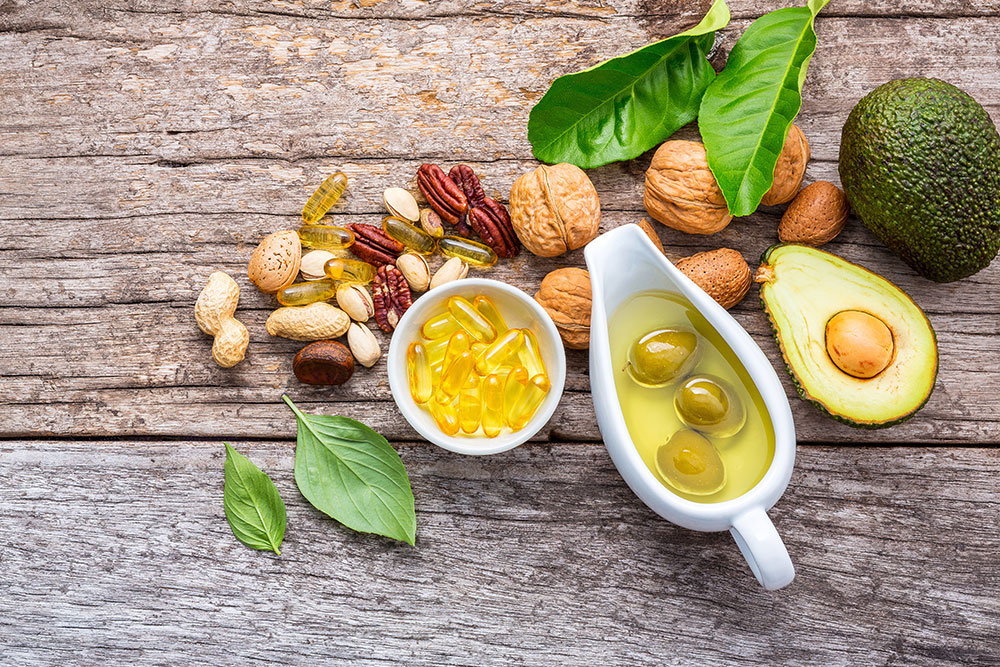
• Fats: They are one of the three macronutrients and are considered to be the dense source of energy to the body. They play an important role in various metabolic functions, as well as in thermal insulation, by getting stored in the body and regulating its temperature. The daily intake of fats would be 25 grams.
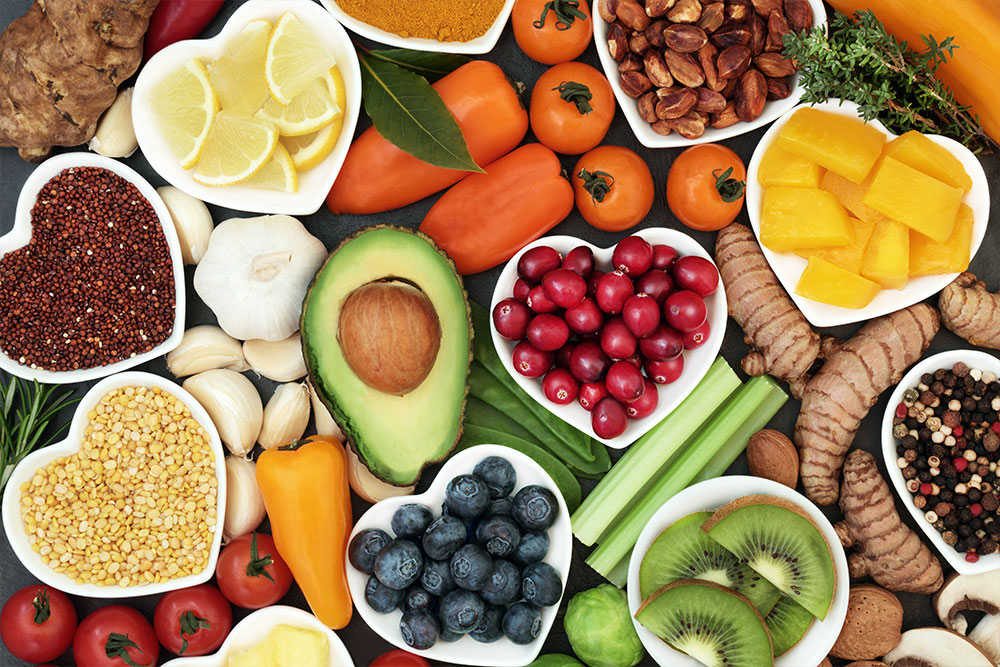
• Vitamins And Minerals: Vitamins are one group of organic substances present in minute amounts in various foods, and is an essential nutrient that body cannot produce.. They act in concert and perform various roles in your body—they help shore up bones, heal wounds, and bolster your immune system. Vitamins and minerals convert food into energy, and repair cellular damage. The recommended daily intake of vitamin A is 460 micrograms, and that of vitamin C is 65 milligrams.
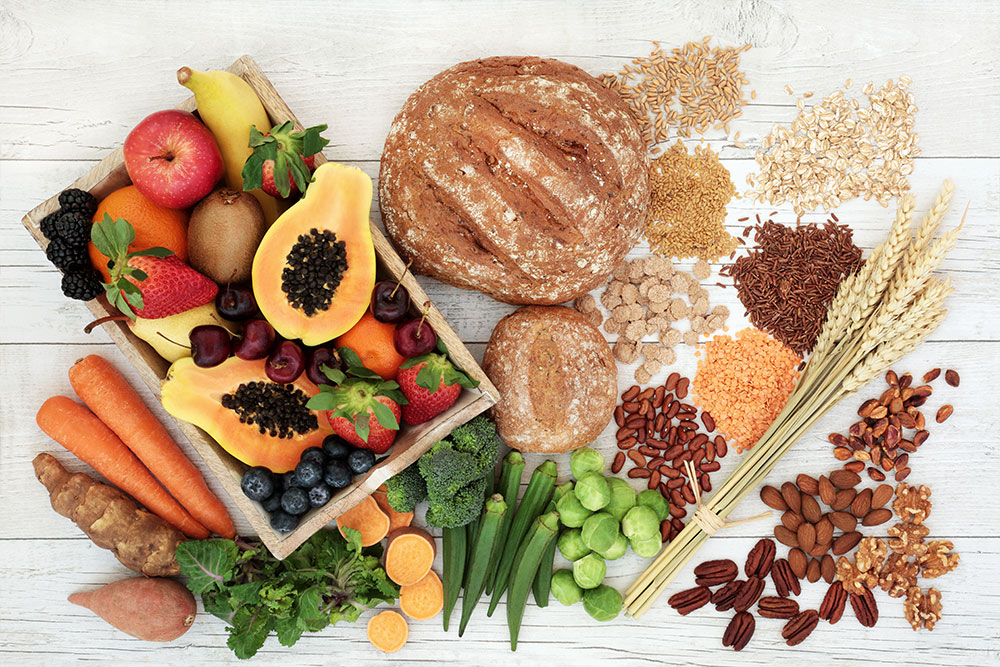
• Fibre: It is a type of carbohydrate found naturally in plant-based foods that is not digested by the human body. It plays an important role in regularising and maintaining your bowel health, and helps control your blood sugar and cholesterol levels. It also provides satiety, thus aiding weight maintenance. You need about 32 grams of fibre to get through the day.

• Water: It plays an important role in various body functions and processes, including digestion and elimination. It also helps in regulating body temperature and improving brain function. The amount of water you need depends on a variety of factors. Since your body loses water through breathing, sweating, and digestion, it is important to rehydrate your body with fluids. Ideally, one should have a minimum of eight glasses of water per day.
Dr Canday shares a sample meal plan, as per the average daily requirement of 2000 calories:
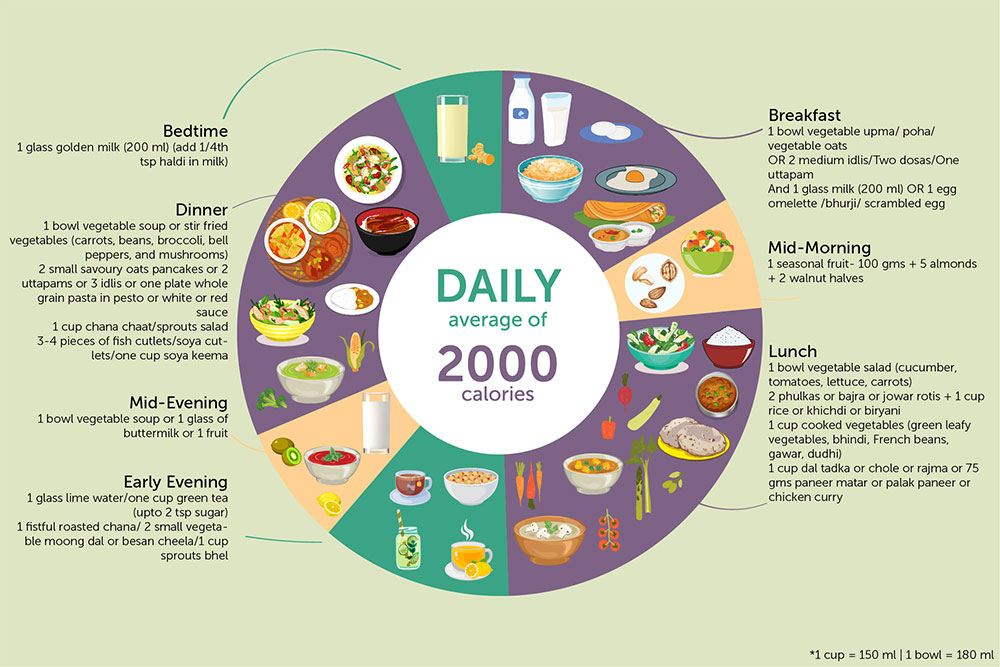
For those who have opted for alternate lifestyle or diets, Dr Canday explains how they can still reap nutritional benefits from their food choices, after a thorough analysis:
a. Vegan
A vegan diet contains only plants (such as vegetables, grains, nuts, and fruits) and foods made from plants. Vegans do not eat foods that come from animals, including dairy products, eggs, and honey. A vegan diet is low in protein. However, plant-based protein-rich food options like pulses, soya, tofu and nuts, or pea protein supplements, can be included in the diet to meet daily protein requirements. Vitamins, minerals, omega 3 supplements may be prescribed to balance overall nutrition.
b. Keto
Keto diets are modified versions of the balanced diet having high fat and protein. This diet plan is used for people with medical conditions and popularly used for weight loss. Vitamins, minerals, omega 3, and fibre supplements may be prescribed to balance the diet.
c. Low-carb
Carbohydrates are the body's main source of energy: They help fuel the brain, kidneys, heart muscles, and central nervous system. For instance, fibre is a carbohydrate that aids in digestion, keeps one fuller for longer, and keeps blood cholesterol levels in check. The body can store extra carbohydrates in your muscles and liver for use when you're not getting enough carbohydrates in the diet. Vitamins, minerals, omega 3, and fibre supplements may be prescribed to balance the diet.
Furthermore, for those who have dietary restrictions, such as diabetics, Dr Archana Batra, nutritionist, physiotherapist, and a certified diabetes educator talks about the use of the Exchange List. This helps those with restrictions stay on track with their diet by listing out the food and its serving size. Depending upon the food preference, one can switch between the food options in a particular food group. In such cases, the cholesterol levels need to be analysed before charting out a diet plan.